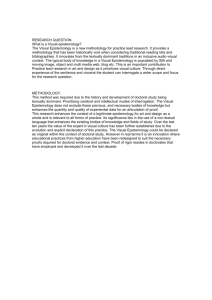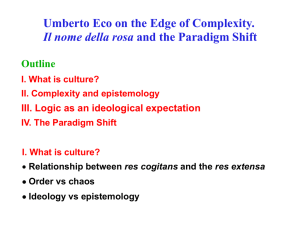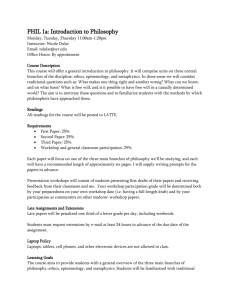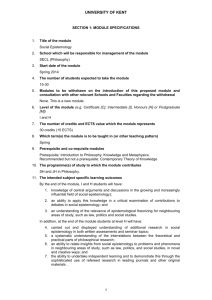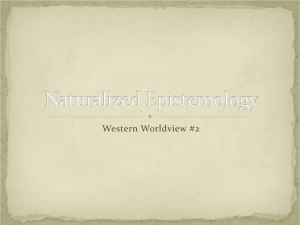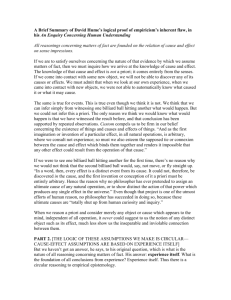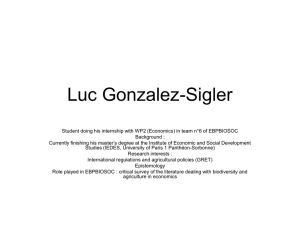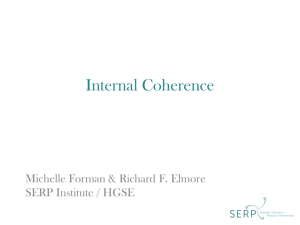Scientific Method notes
advertisement
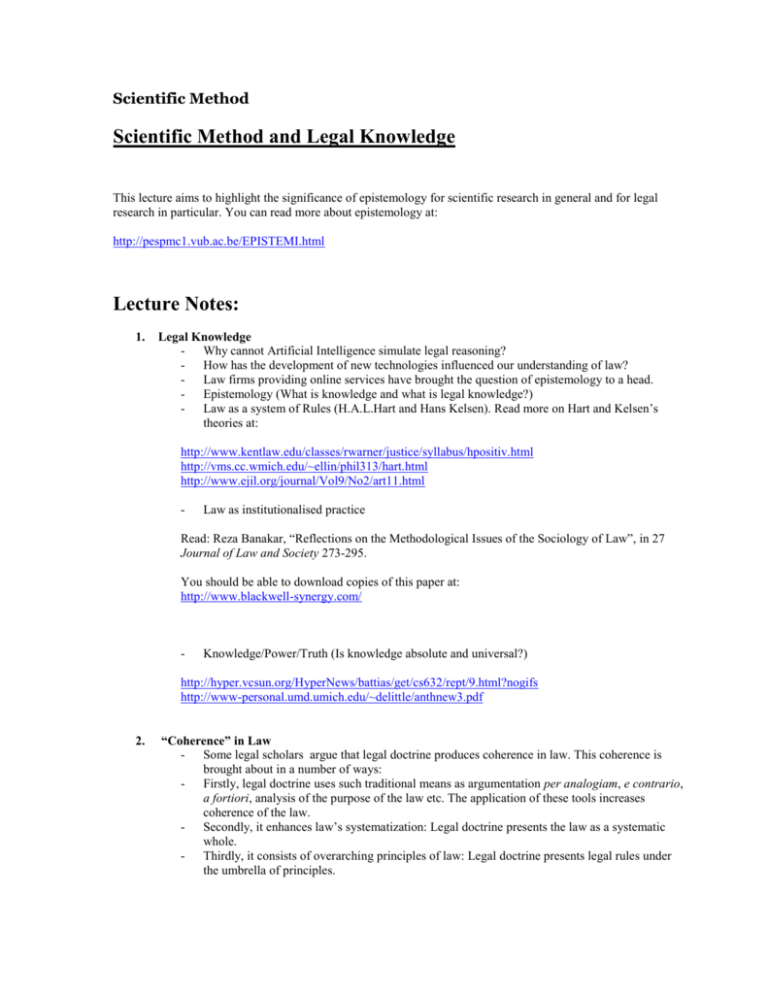
Scientific Method Scientific Method and Legal Knowledge This lecture aims to highlight the significance of epistemology for scientific research in general and for legal research in particular. You can read more about epistemology at: http://pespmc1.vub.ac.be/EPISTEMI.html Lecture Notes: 1. Legal Knowledge - Why cannot Artificial Intelligence simulate legal reasoning? - How has the development of new technologies influenced our understanding of law? - Law firms providing online services have brought the question of epistemology to a head. - Epistemology (What is knowledge and what is legal knowledge?) - Law as a system of Rules (H.A.L.Hart and Hans Kelsen). Read more on Hart and Kelsen’s theories at: http://www.kentlaw.edu/classes/rwarner/justice/syllabus/hpositiv.html http://vms.cc.wmich.edu/~ellin/phil313/hart.html http://www.ejil.org/journal/Vol9/No2/art11.html - Law as institutionalised practice Read: Reza Banakar, “Reflections on the Methodological Issues of the Sociology of Law”, in 27 Journal of Law and Society 273-295. You should be able to download copies of this paper at: http://www.blackwell-synergy.com/ - Knowledge/Power/Truth (Is knowledge absolute and universal?) http://hyper.vcsun.org/HyperNews/battias/get/cs632/rept/9.html?nogifs http://www-personal.umd.umich.edu/~delittle/anthnew3.pdf 2. “Coherence” in Law - Some legal scholars argue that legal doctrine produces coherence in law. This coherence is brought about in a number of ways: - Firstly, legal doctrine uses such traditional means as argumentation per analogiam, e contrario, a fortiori, analysis of the purpose of the law etc. The application of these tools increases coherence of the law. - Secondly, it enhances law’s systematization: Legal doctrine presents the law as a systematic whole. - Thirdly, it consists of overarching principles of law: Legal doctrine presents legal rules under the umbrella of principles. - Fourthly, it gives law unity in time: Legal doctrine presents the law as evolving piecemeal: all parts of the law may change but not all at once. Finally, it ensures the unity of legal validity. It achieves a high degree of sophistication in Hans Kelsen’s pure theory of law. Read more: http://www.ivr2003.net/documents/ECAPAP.doc http://www.ivr2003.net/documents/151197AP.doc 3. Science - Observation, empiricism and Induction (Knowledge as a product of sensory perceptions) – development of experimental sciences http://dieoff.org/page126.htm http://www.wsu.edu:8080/~dee/GLOSSARY/EMPIRIC.HTM - Theoretical reasoning, rationalism and Deduction (knowledge as the product of rational reflection – a priori categories) http://www.anselm.edu/homepage/dbanach/logemp.htm http://www.faragher.freeserve.co.uk/induct.htm - Objectivity (rationality, value neutrality, distance, logic) http://home.no.net/rrpriddy/lim/5.html http://uk.geocities.com/balihar_sanghera/ipsrobjectivityandvalues.html - Development of scientific thought (Thomas Kuhn) http://www.emory.edu/EDUCATION/mfp/Kuhnsnap.html http://www.emory.edu/EDUCATION/mfp/Kuhn.html http://www.newcriterion.com/archive/18/jun00/kuhn.htm - Social sciences and natural sciences http://research2.csci.educ.ubc.ca/soc100/lectures/social_scientific_methods.pdf http://www2.pfeiffer.edu/~lridener/DSS/Weber/WEBERW2.HTML - Quantitative and qualitative research 2. Feminist Critique - 1) Objectivity and claim to value-freedom is a male standard of reasoning and 2) law legitimates oppression and treats women differently. - The system of male authority structures the institutions and organisational rationality of law. - The violence pf patriarchy is institutionalised in the practice of legal systems. - Women’s sense of justice (ethics of justice and ethics of care) http://plato.stanford.edu/entries/feminism-epistemology/ http://www.aacu.org/publications/pdfs/FAQ1.pdf Also read chapters 7, 8 and 9 in An Introduction to Law and Social Theory. Edited with Max Travers. Hart Publishing: Oxford, 2002. 4. The Inter-Relationship of Theory and Methods - 5. Methods of inquiry are based on certain epistemological assumption The method we choose should in line with our basic theoretical assumptions and also what we ultimately aim to study. Law and social Sciences - Law’s epistemology(s) - Sociology’s epistemology(s) - Internal and external realities of law Read: Reza Banakar, “Reflections on the Methodological Issues of the Sociology of Law”, in 27 Journal of Law and Society 273-295.
